Peptide-mediated regulation of receptor scaffolding in plant immune signaling ($)
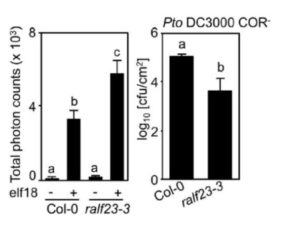 Continuing the theme of peptide signaling, Stegmann et al. showed that a subset of the RALF (RAPID ALKALINIZATION FACTOR) family of plant peptides can negatively regulate plant immune responses. When plants are treated with flg22, a peptide epitope of bacterial flagellin, they produce reactive oxygen species (ROS) as part of their defense response. The flg22 epitope is perceived by the receptor kinase FLS2. Co-application of flg22 and RALF23 or RALF33 (following their proteolytic release from the propeptide) suppresses ROS production. The receptor kinase FERONIA (FER) is necessary for RALF-mediated suppression of immunity; FER has also been shown to have a positive role in immunity by facilitating FLS2 complex formation with its co-receptor BAK1 potentially by binding to other RALF peptides that positively regulate immunity. These results show that FER fine-tunes immune receptor complex formation, via the perception of competitive endogenous peptides, which could have wide implications to understand the function of FER in multiple plant processes. Science 10.1126/science.aal2541
Continuing the theme of peptide signaling, Stegmann et al. showed that a subset of the RALF (RAPID ALKALINIZATION FACTOR) family of plant peptides can negatively regulate plant immune responses. When plants are treated with flg22, a peptide epitope of bacterial flagellin, they produce reactive oxygen species (ROS) as part of their defense response. The flg22 epitope is perceived by the receptor kinase FLS2. Co-application of flg22 and RALF23 or RALF33 (following their proteolytic release from the propeptide) suppresses ROS production. The receptor kinase FERONIA (FER) is necessary for RALF-mediated suppression of immunity; FER has also been shown to have a positive role in immunity by facilitating FLS2 complex formation with its co-receptor BAK1 potentially by binding to other RALF peptides that positively regulate immunity. These results show that FER fine-tunes immune receptor complex formation, via the perception of competitive endogenous peptides, which could have wide implications to understand the function of FER in multiple plant processes. Science 10.1126/science.aal2541


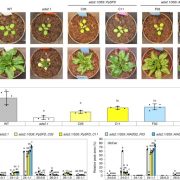
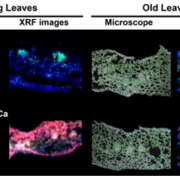

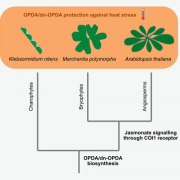

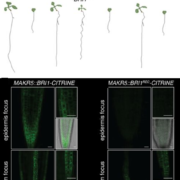


Leave a Reply
Want to join the discussion?Feel free to contribute!